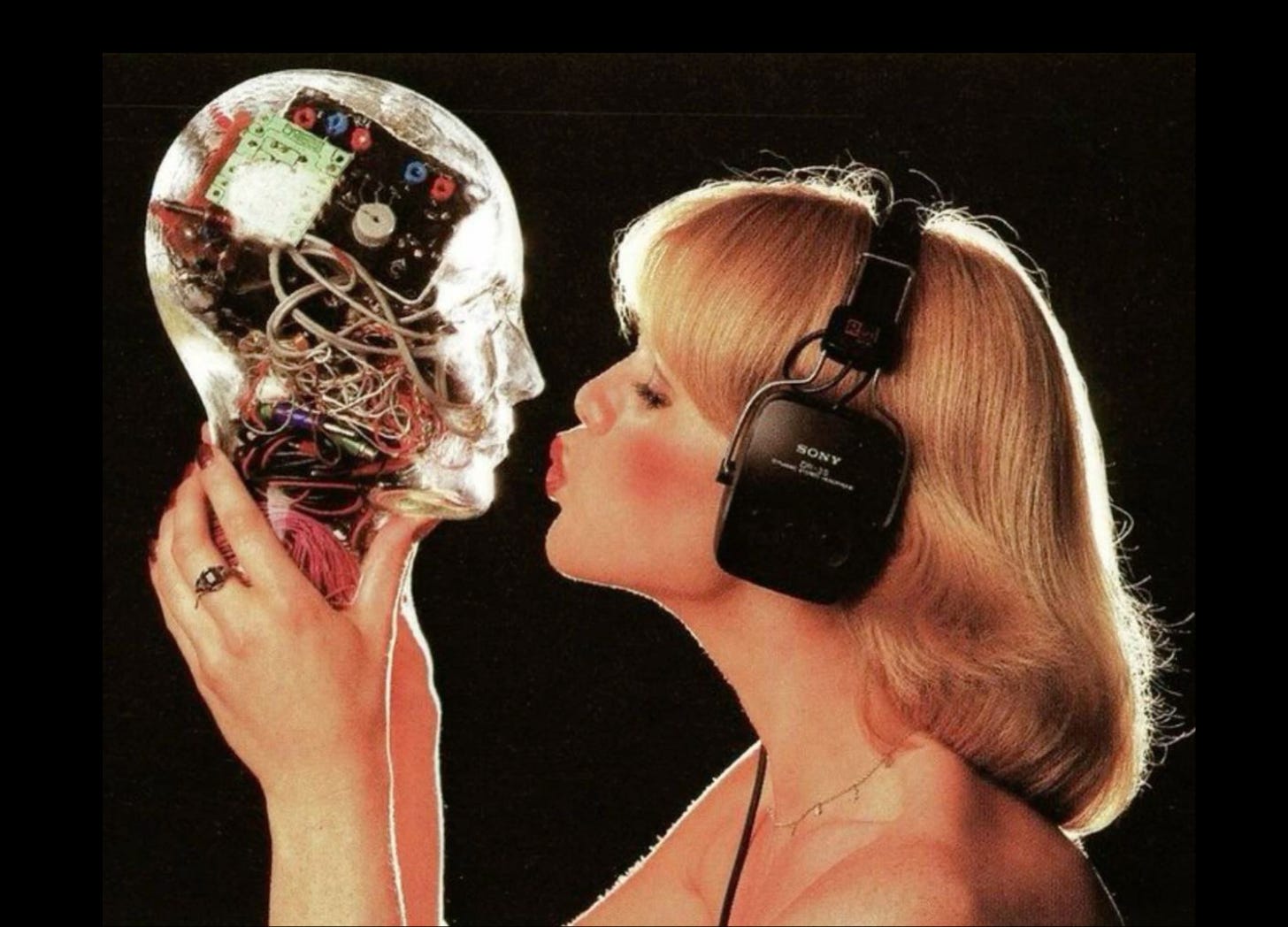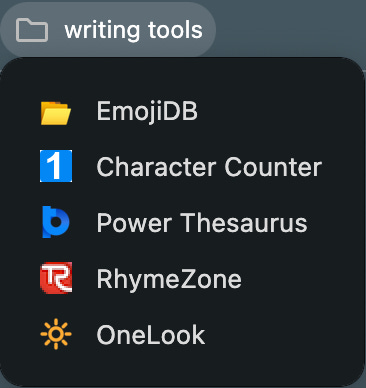7 Writing Tools That Aren’t ChatGPT
From a freelance writer + Creative Director
I have some new subscribers since my last post. If you’re new, hi <3
I’m a freelance writer and Creative Director based in Brooklyn. Meaning, I write and creative consult for brands, doing everything from tone of voice work to product launch messaging to day to day copy needs. I write across CPG brands (like OLIPOP and Synergy Kombucha), beauty brands (like Dieux and Tower28), entertainment brands (like A24 and FX), and lifestyle brands (like Nike, To Be Magnetic, and My Human Design).
Recently, I’ve been doing a lot of this work with my girls over at Fonzie, the copy-led creative agency, but I’m always freelancing with clients independently too (thanks to How To Go Freelance). All this to say–not only do I write a lot. I write about a lot.
I started my writing career 8 years ago at ad agencies. Before that, I went to grad school for writing. Before that, I was an English major. And before that, I had an Xanga Blog (humblebrag). I’ve had lots of time to build a robust, niche collection of writing tools that are not ChatGPT.
This isn’t a commentary or criticism on using AI to write. I resonate with David Lynch in his apparent conversation with Natasha Lyonne, where she quotes him as saying,
“Natasha, this is a pencil. Everyone has access to a pencil, and likewise, everyone with a phone will be using AI, if they aren’t already. It’s how you use the pencil. You see?”
Lynch passed in January 2025, so he never confirmed this conversation, but even before this, he gave an interview with Sight and Sound where he expressed his views on AI.
“I think it’s fantastic. I know a lot of people are afraid of it. I’m sure, like everything they say it’ll be used for good or for bad...I’m sure with all these things, if money is the bottom line, there’d be a lot of sadness, and despair, and horror. But I’m hoping better times are coming.”
I, too, am an optimist.
The cultural confluence of AI language models and the Substack platform means more people are becoming writers. To me, the future of writing is less about “to AI or not to AI” and more about diversifying the tools in our writing toolbox.
ChatGPT is basically a supercharged power drill with infinite bits, buttons, and settings. Do you need a supercharged power drill with infinite bits, buttons, and settings to hang a poster? Probably not. Does it come in handy when you’re building a house? Yeah, it does.
But sometimes, you just need a hammer. Or a really good thesaurus.
Cultivating that discernment–around which tool to use when is how you get better at any craft. Of course, this applies to writing. The supercharged power drill is here. The question is, what other tools do you have? And do you practice using them?
In that spirit, I want to share the writing tools I’ve leaned on for almost a decade of creative, professional (and often entirely unprofessional!) writing, in the hopes that you have more tools to use and therefore write better stuff for me to read.
7 Writing Tools That Aren’t ChatGPT
#1 Power Thesaurus –The best thesaurus on the internet IMO. It’s a community-driven thesaurus, meaning its results are sourced from real people. I find that it’s almost always colloquial and satisfying and better than ChatGPT.
#2 Onelook – Your guide to every word, phrase, idiom, and quote in the English language. And more! I particularly like their “related words” function that spits out not synonyms but ideas and concepts related to whatever word you input.
#3 EmojiDB – Do people know this one? This is the best way that I’ve found to source emojis and special characters. You can type in anything, and Emojidb will give you all kinds of fun, related icons that automatically copy to your keyboard when you click them.
#4 Rhymezone – you’d be shocked at how often I use this one.
#5 Letter Count – Yeah, ChatGPT can count characters. But it’s often wrong! I always find myself coming back here, especially for those pesky 25-character meta ad headlines or the 3,000+ word product reviews I’m writing for The Good Trade.
#6 The Elements of Style – If you’re a Substack writer, this book belongs in your library. It was required reading in grad school, and I’m due for a re-read. It’s thin, easy, and a certified classic.
#7 On Writing – Stephen King’s part memoir, part writer’s manual. I’m currently reading this to help move past a 2-month bout of writer’s block, and I’m really enjoying it.
I like having these tools bookmarked in one folder on my browser to remind myself that they exist.
I hope they help you! And I would love to hear about some of your favorite non-AI writing tools. Any books, magazines, or pieces of advice you have for the writers of Substack? Double points for niche websites! Drop them below.




Am I a writer? No. Did I read every word and bookmark every link? Yes. Doing the lords work!
I just went down such a rabbit hole playing with the emojis! 😭👏👏👏